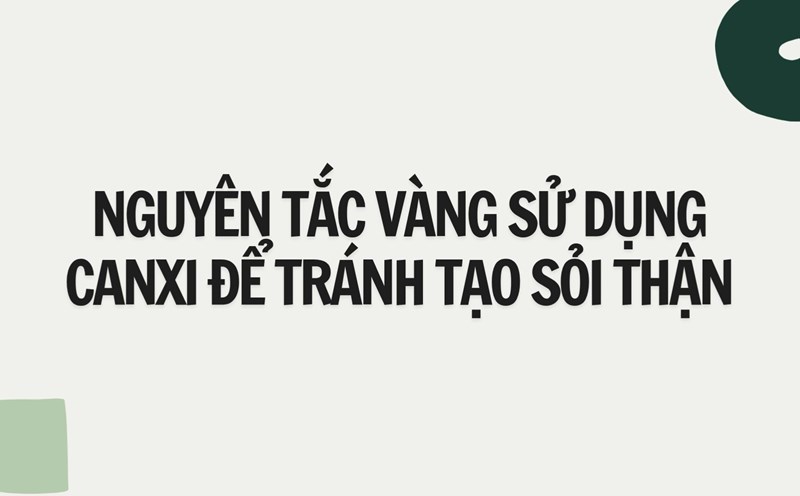1. Do not take more than 1,000 mg of vitamin C per day
Prolonged high-dose supplementation, especially over 1,000 mg/day, can cause the body to excrete more oxalate through urine, according to NIH. When oxalate levels are too high, it can easily crystallize with calcium and form stones in the kidneys. People who have had kidney stones should avoid high doses of vitamin C.
2. How to get vitamin C from natural foods
Sources of vitamin C from fruits and vegetables such as oranges, tangerines, strawberries, guava, bell peppers, etc. do not cause increased oxalate levels like tablets. A diet rich in vegetables and fruits is a safe way to ensure daily vitamin C needs without increasing the risk of stone formation.
3. Drink enough water throughout the day
If you are taking vitamin C supplements, you need to drink enough 2 - 3 liters of water per day. Staying hydrated helps dilute urine, reduce oxalate levels and prevent stone formation.
4. Do not arbitrarily supplement if you have had kidney stones
People with a history of calcium oxalate stones should avoid taking vitamin C tablets without a doctor's prescription. Using it incorrectly can cause the disease to recur faster.











